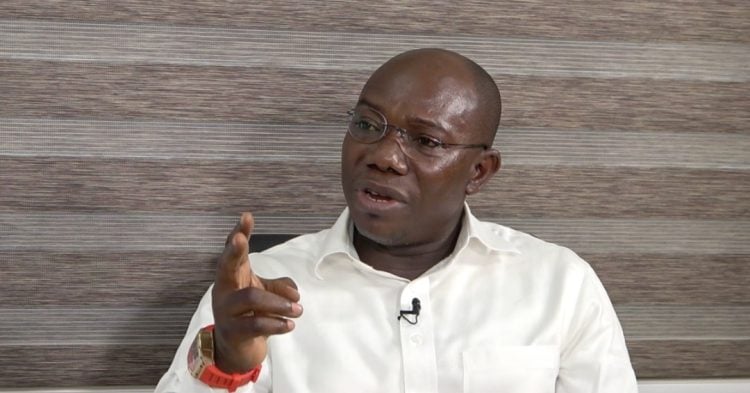The New Patriotic Party (NPP) has publicly expressed its discontent regarding the Electoral Commission’s (EC) actions concerning the oversight of ballot paper printing for the upcoming 2024 elections in Ghana. The party’s leadership alleges that their representatives have been denied access to the facilities where the ballot papers are being produced, while only the National Democratic Congress (NDC) has been permitted to monitor this critical process. This has raised concerns about fairness and transparency in what is viewed as a foundational element of the electoral process. Evans Nimako, NPP’s Director of Elections, conveyed the party’s grievances during an interview on Adom FM’s ‘Burning Issues,’ emphasizing that the NPP is not satisfied with the EC’s handling of such a vital stage in the electoral process.
Nimako expressed that while the NPP is generally content with the electoral processes put in place up to this point, the lack of access to supervise the printing of ballots remains a significant concern. He underscored the importance of equitable access for all political parties involved, arguing that the transparency of the electoral process is essential for maintaining public trust. The NPP contends that they diligently followed the EC’s guidance to nominate their agents for monitoring the printing process, yet were still denied the necessary accreditation by the commission. This has led to allegations of favoritism that could undermine the integrity of the electoral process.
The NPP’s stance highlights a broader concern regarding the electoral environment in Ghana, illustrating the contentious nature of political competition between the two main parties. According to Nimako, had the roles been reversed—meaning the NPP had been granted exclusive access while excluding the NDC—there would likely have been significant backlash and outcry from their opponents. Such a situation underscores the delicate balance that the EC needs to maintain in order to ensure fairness and prevent any hint of bias that could taint the electoral process.
Despite the frustrations expressed regarding the lack of formal access, Nimako indicated that the NPP has adapted to the situation by utilizing a network of informants. This indicates a level of resourcefulness on the part of the NPP to keep themselves informed, even in the face of restricted access. They remain dependent on these agents to provide daily reports and information about the process, which they claim has been reliable. However, this reliance on informal channels underscores a broader concern regarding transparency, as the party maintains that it would have preferred official accreditation to ensure that all stakeholders are adequately represented in the oversight of the printing process.
The debate continues regarding the role of the EC in ensuring that all political parties are given equal opportunities to monitor and engage in electoral processes. Some critics argue that the EC’s actions may reinforce perceptions of bias and could potentially disenfranchise one of the major parties. The NPP’s grievances serve as a reminder of the heightened scrutiny that electoral commissions face, particularly in a politically charged environment, emphasizing the importance of maintaining rigorous standards of impartiality and fairness. Without equitable access to electoral processes, the legitimacy of the upcoming elections may come into question, putting added pressure on the EC to address these claims promptly.
In conclusion, the NPP’s disappointment with the EC reflects a critical moment in Ghana’s electoral landscape, calling attention to the need for transparency and fair access for all political parties involved. As the country approaches the 2024 elections, these issues will likely remain at the forefront of the political discourse. Vigilance around electoral integrity is paramount, and the actions taken by the EC in addressing the NPP’s concerns will be closely watched by both political parties and the general public. Ensuring that all parties are equally represented and have the opportunity to supervise significant electoral processes will be essential in fostering public trust and ensuring a legitimate electoral outcome.


